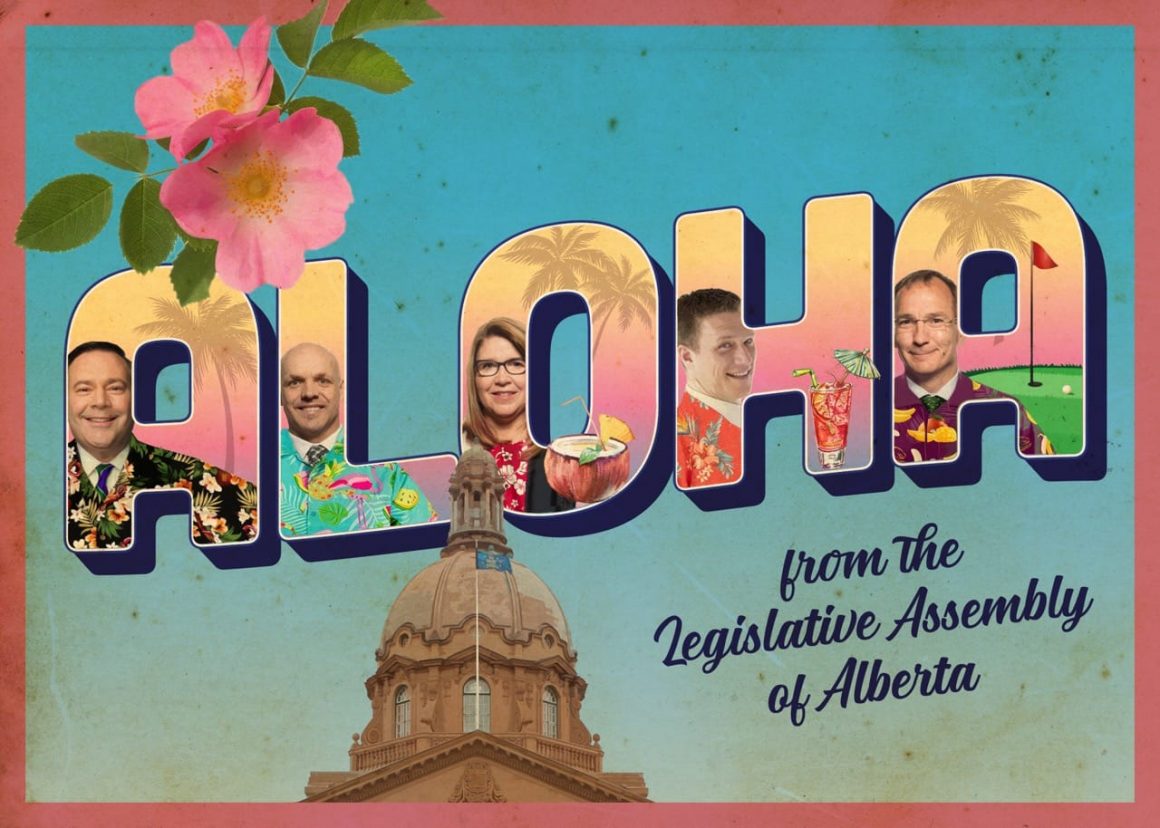
The Politics of Party Scandals: COVID-19, Conservative vacationing and larger political patterns
By Christian Lowry, February 4 2021—
Among the various Canadian provinces, the ongoing coronavirus pandemic has been particularly unkind to Alberta. The province has 11.6 per cent of Canada’s population, but 16.8 per cent of its confirmed cases of COVID-19 and 17.1 per cent of its active cases. Although every province experienced the second wave of COVID-19 between September and December 2020, Alberta suffered the largest increase in cases in the shortest period of time. By Nov. 20, Alberta was the only province in Canada without a mask mandate. As of Dec. 15, Alberta had the second-highest rate of active cases in Canada, slightly behind Saskatchewan. Presently, Jason Kenney’s United Conservative Party (UCP) government’s response is by far the least popular in Canada.
In early January of 2021, the UCP faced another public relations setback as it came to light that numerous party officials, including six MLAs, traveled abroad to exotic destinations such as Hawaii. Such luxuries are unavailable to the common Albertan with whom the conservative leadership claims to be in touch. They live in a different world and are threatened with fines ranging from $1,000 to $100,000 for failing to honor the belated provincial public health restrictions.
It would be a serious mistake to consider the UCP vacation scandal finished after a few half-hearted speeches, belated resignations and temporary embarrassments for the party itself. It should be remembered that the UCP represents, for all intents and purposes, the right wing of Albertan politics. There is a glaring discrepancy between its leadership’s gushing praise of the free market on the one hand and their professed support of public services such as healthcare and education on the other.
Although the guilty parties in the travel scandal were undoubtedly embarrassed, the gears of the UCP machine will continue turning without much interruption. Politics is more than a popularity contest lived in the moment — it is a constant mechanism by which power is distributed and exercised in society, and the end to which it is directed. Between ordinary and wealthy Albertans, the UCP knows what side its bread is buttered on.
The unexpected recklessness of many of its leaders will likely help the conservative political project in the long run. The idea that a class of conservative politicians can live in luxury is undoubtedly infuriating to many Albertans who chafe under the sometimes obnoxious but necessary restrictions on movement and assembly. Most Albertans are angry because they sincerely believe in the recent public health measures and continue to support them.
Others see the misdeeds of the vacationing staffers as proof that COVID-19 is not a serious health threat and will agitate for the lifting of restrictions. The latter would play into the UCP’s objective of reopening the economy on terms favorable to its corporate base. This has wide and dire implications for other matters of importance to everyday Albertans. The false choice that the UCP offers between socially-minded policies and the economy is regularly mirrored in debates over taxes, education, healthcare, pipelines, mining, climate change and workplace safety among other issues.
For example, the UCP recently endorsed the institution of supplementary private health insurance, a step towards healthcare privatization in a country with universal health care. Although the party pays lip service to the ideal of a public health care system, its recent decision and its conservative ideology tell us such a commitment is tactical in nature due to the system’s unique popularity. If supplementary insurance is implemented, the wealthiest Albertans will be able to afford the best private care and will lose their motivation to pay massive sums towards a health system that they do not use. They will also siphon many medical practitioners away from the remnants of the public system to serve a much smaller segment of the population, and leave middle-class and lower-class Albertans to pick up the tab for public health care. Without the payments of wealthy individuals, the higher rates of mortality and sickness among lower-income populations will raise the costs of the public system and limit its efficiency, creating a artificially-heightened demand for a fully private health system.
The recent UCP travel scandal has important lessons that extend well beyond the actions of those involved. Whether its elites travelling in opulence or getting leverage for their political vision, it seems like they stand to gain no matter what. For our own good, we must learn to discern the larger forces at work in seemingly minor matters such as vacationing scandals, and not allow them to surprise us.
This article is part of our Opinions section and does not necessarily reflect the views of the Gauntlet’s editorial board.
